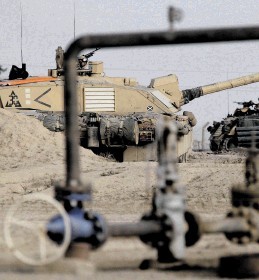
Oil prices will stay at about $65 a barrel for at least half a year until OPEC changes its collective production or world economic growth revives, said the head of state-run Kuwait Petroleum Corp.
Oil is trading in a bear market as the US pumps at the fastest rate in more than three decades and global demand expands more slowly. OPEC decided on November 27 to maintain its output target, prompting a drop in European benchmark Brent crude to less than $70 a barrel for the first time since May 2010.
“I think oil prices will stay around the current level of $65 for six or seven months until OPEC changes its production policy, or recovery in world economic growth become more clear, or a geopolitical tension arises,” Nizar Al-Adsani, KPC’s chief executive officer, said at a conference in Kuwait City.
Crude prices have declined about 40% from a June peak amid overproduction and sluggish growth in consumption.
Saudi Arabia (SABIC) led OPEC’s decision to maintain rather than cut output last month in Vienna, citing the threat US shale presents to the group’s market share, Iranian Oil Minister Bijan Namdar Zanganeh said on November 28. Brent was 2.5% lower at $67.33 a barrel in London.
The Organization of Petroleum Exporting Countries pumped 30.56 million barrels a day in November, exceeding its target of 30 million for a sixth consecutive month, according to estimates compiled.
US oil production accelerated to 9.08 million barrels a day through November 28, according to data from the Energy Information Administration.
That’s the fastest rate in weekly records that started in January 1983.
Kuwait is producing 2.9 million barrels of crude a day, Al-Adsani said. Together with neighboring Saudi Arabia, Kuwait is pumping 200,000 barrels a day from the Chevron Corp operated Wafra field straddling their border, he said.
It’s still unclear when production will resume at the Khafji oil field in Kuwait’s shared neutral zone with Saudi Arabia, Al-Adsani said.
Khafji was producing 300,000 barrels a day before Saudi Arabia closed it in late October, citing environmental and technical reasons.
Recommended for you
